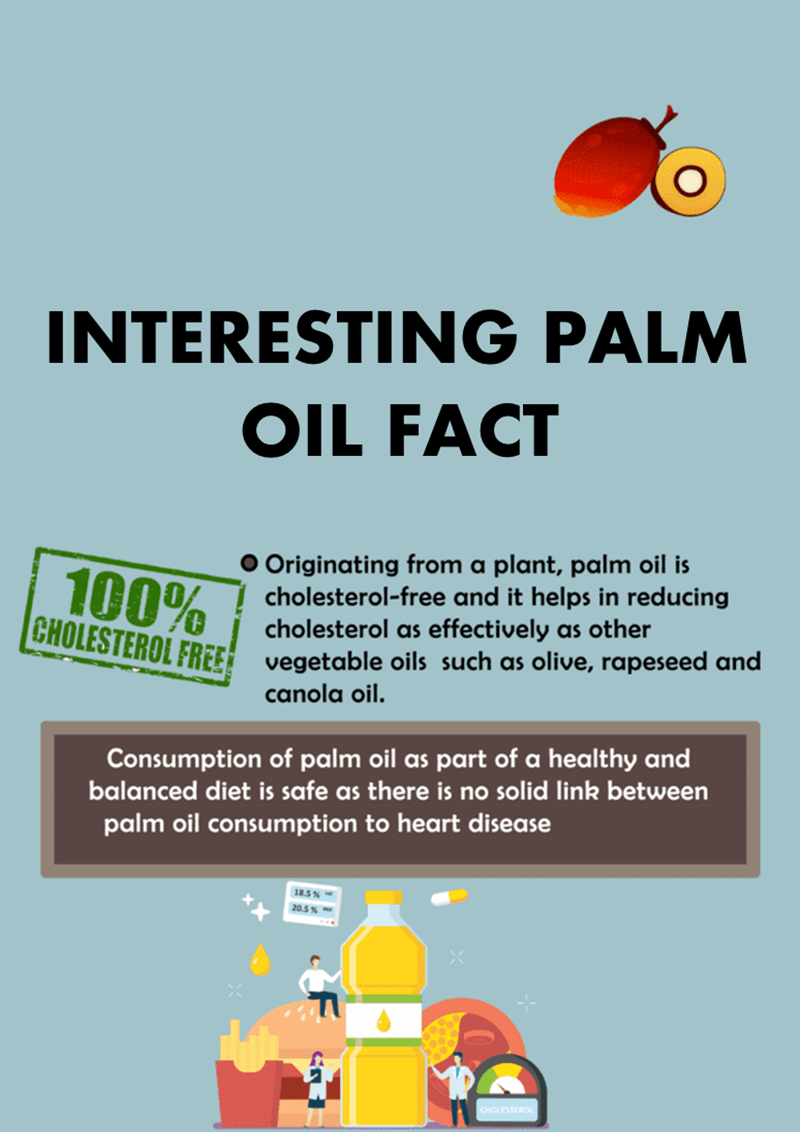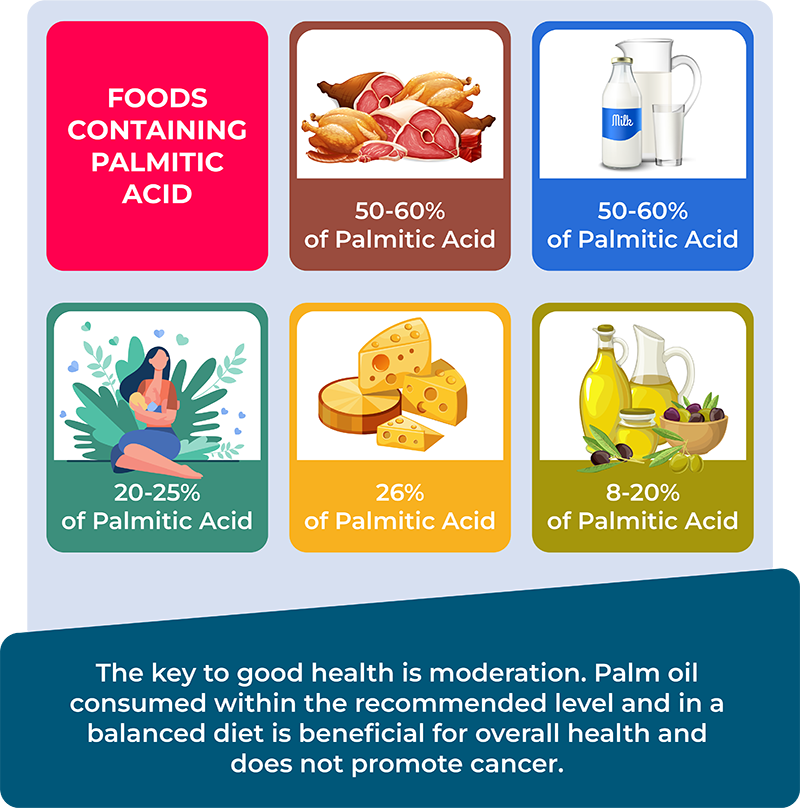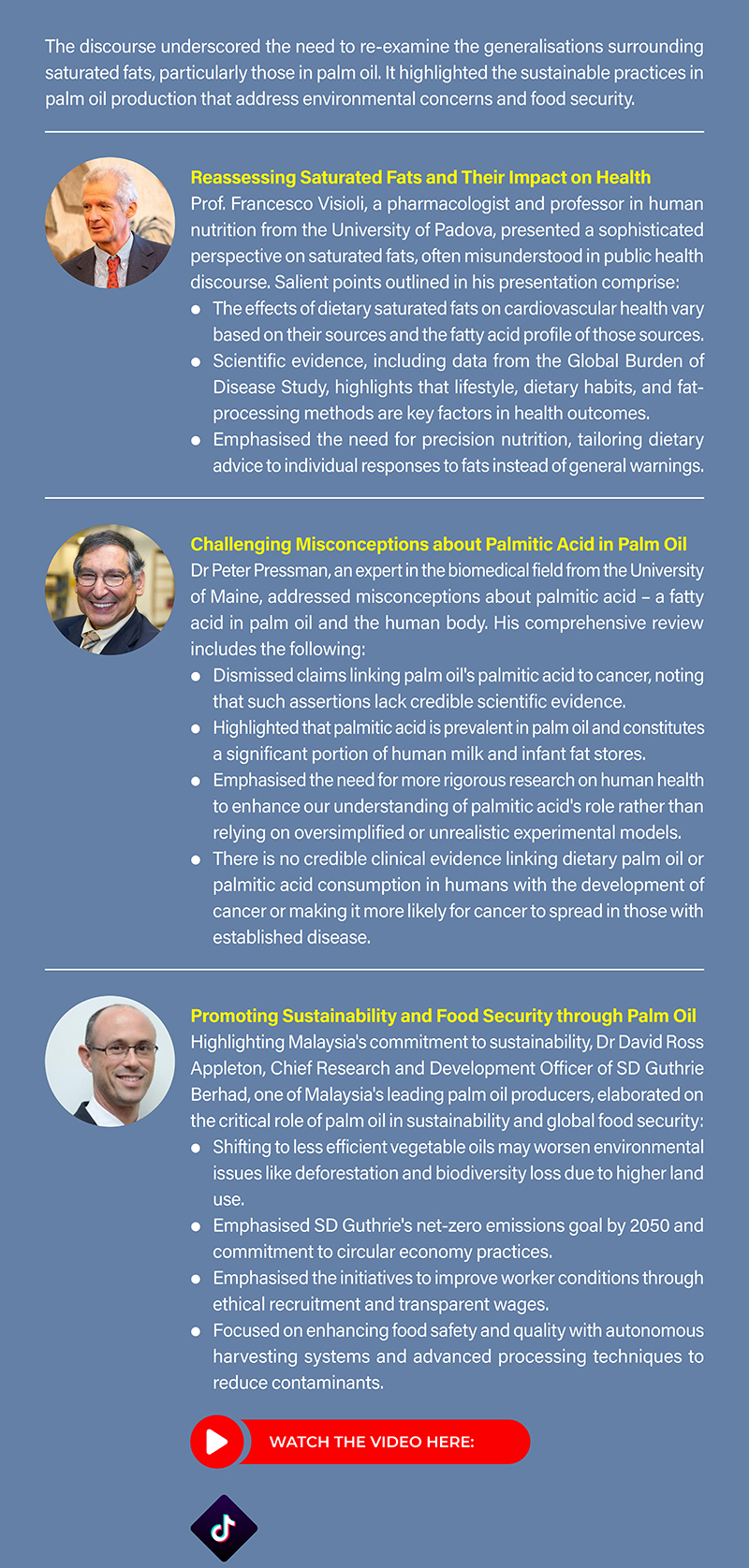Frequently Asked Questions (FAQ)
Your go-to guide for understanding the palm oil industry and gaining insights into nutrition and health, sustainability, environmental impact, and industry practices.


No single dietary component will reduce all risks associated with heart disease. Cardiovascular disease risk is influenced by factors such as overall lifestyles, dietary habits, nutritional status, and genetics/epigenetics. Studies conducted in the 1950s advanced the diet-heart hypothesis that saturated fats caused heart disease. The promotion of this hypothesis was based on weak, associational evidence. Subsequent clinical trials attempting to substantiate this hypothesis could never establish a causal link. More recent clinical evidence and re-examining the early evidence by nutrition experts have concluded that saturated fats do not affect cardiovascular disease, cardiovascular mortality, or total mortality. In this diet-heart hypothesis, palm oil was thought to have a negative impact on heart disease risk due to its saturated fatty acid content. However, much scientific evidence has challenged this misconception. Researchers have found that palm oil, with a balanced fatty acid composition of about 50% saturated and 50% unsaturated fatty acids, has a neutral effect on blood cholesterol and heart disease risk factors. In fact, more contemporary studies suggest that its impact on blood cholesterol is similar to that of olive and canola oils when consumed in moderate amounts as part of a balanced diet.
Source:
1. Fattore, E et al. (2014). The Am J Clin Nutr. 99(6): 1331-1350.
2. Teicholz N. (2023). Curr Opin Endocrinol Diabetes Obes. 30(1):65-71. doi: 10.1097/MED.0000000000000791.


No There is no credible or clinical evidence that dietary palmitic acid is a potential carcinogen or prometastatic. Palmitic acid is present in all oils and fats regardless of sources. In fact, palmitic acid is the most abundant saturated fatty acid in nature, including all mammalian milk. Dietary palmitic acid represents about 2% of the palmitic acid in humans. Limited in vitro and animal studies do not reflect clinical reality, in which palmitic acid plays a vital role in human development and metabolism. Palmitic acid represents about 20-30% of total fats in cell membranes and body fat. It can be found in dairy and meat products, cocoa butter, olive oil, palm oil, and even in human breast milk (as the predominant saturated fatty acid). The trajectory and progression of cancer are characterised by a huge constellation of intricate mechanisms, and the vast majority of experimental and epidemiologic data suggest that dietary palmitic acid is not a central determinant in cancer development. If anything, there are exciting and clinically compelling data that its effects may attenuate transformation to malignancy.
Source: Carta, G et al. (2015). PLoS ONE, 10:e0120404


MPOC’s Participation at the IUFoST World Congress 2024
MPOC supported a pivotal session at the 22nd IUFoST World Congress at the Palacongressi di Rimini, Italy. This session brought together international experts to delve into the complex relationship between dietary fats, human health, and sustainability, with a focus on palm oil.












